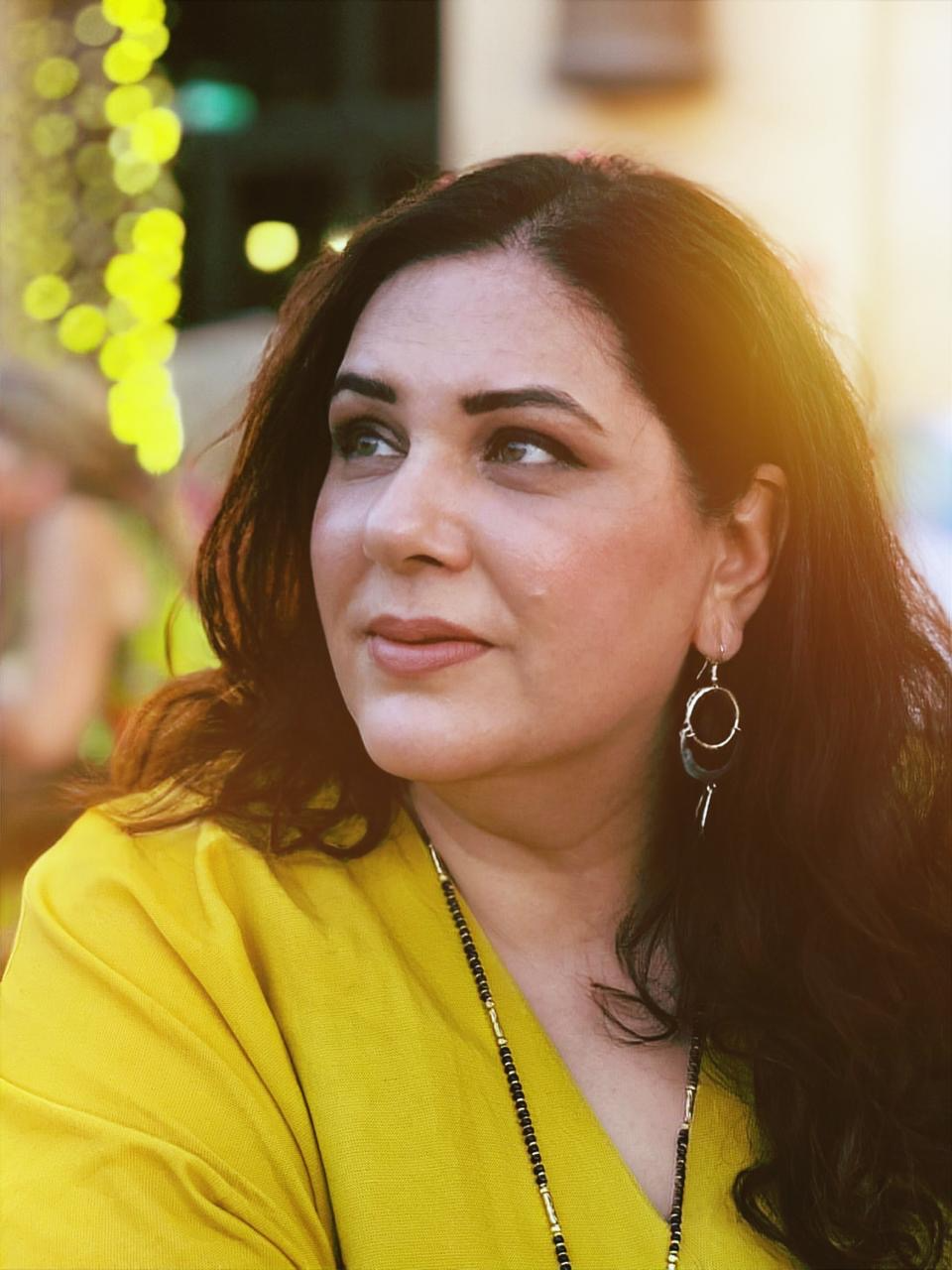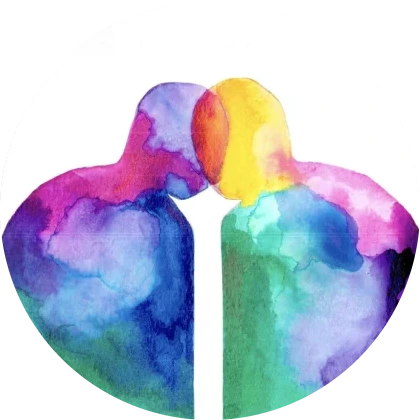ADHD and Trauma Therapy: Chaos to Clarity
Welcome!
Life’s challenges, whether rooted in trauma, ADHD, loss or burnout - can leave you feeling overwhelmed, stuck or disconnected. With over 23 years of experience as a counsellor and psychotherapist, I offer a safe and supportive, proactive space in Chigwell for those seeking change. Together, we’ll focus on what matters most to you—managing emotions, recovering from burnout, improving focus, healing past pain, or strengthening relationships. Uncovering practical steps towards creating a life that feels true to who you are.
I offer a compassionate space to navigate the unique challenges that have impacted your connections, whether it's communication breakdown, growing distance, or the ripple effects of trauma or ADHD have on your world.
If you feel ready to proactively take steps towards change, I’m here to guide you find clarity and balance in your life and relationships.

Services
ADHD and Trauma Therapy (Adults)
I’ve come to understand how ADHD and trauma frequently overlap, bringing shared struggles: sleepless nights, inner and outer chaos, and difficulties with focus, motivation, and maintaining energy. Burnout often signals the need to slow down. Living with trauma, ADHD or both in many cases is complex.
Therapeutic ADHD Coaching (Adults)
My therapeutic ADHD coaching blends years of therapy experience with a practical coaching approach, creating a safe, supportive space to work through present challenges. Together, we’ll explore patterns or obstacles that may be holding you back and develop a clear, step-by-step plan to help you reach your goals.
Mentoring for ADHD Challenges
ADHD can sometimes make life, relationships, communication and connection feel just out of reach, creating a sense of distance from the world around you that’s hard to navigate. Whether you have a formal diagnosis, you recognise yourself in ADHD or you are parenting a child with ADHD, challenges can more manageable with the support of a mentor.
What my clients say...
Some frequently asked questions...
While my specialism is in ADHD and trauma, I also work with a wide range of other challenges, such as loss, life transitions, Expats and more.
If you’re not sure whether I can help, please feel free to get in touch through the contact form wherever you are in the world. Let me know a little about what’s going on for you, and we can discuss how I may be able to support you or guide you in the right direction.
During this call, we’ll take some time to discuss what you're hoping to achieve and the goals you'd like to work towards. You’ll also have the chance to ask any questions about my approach, and I’ll explain the key agreements that guide our work, such as confidentiality.
This is a great opportunity to see if we’re a good fit, and to talk through any questions you might have, including the fee.
If you feel ready to move forward, we’ll schedule a 90-minute initial session. Ahead of our meeting, I’ll ask you to complete an Initial Assessment Form with some basic contact details. From there, we’re all set to begin our work together. Request your introductory call.
An initial psychotherapy session is a space for us to explore what’s bringing you to therapy and what you hope to achieve. We’ll talk about your current challenges, personal history, and any goals you have in mind. It’s also an opportunity for you to ask questions about how I work and decide if therapy feels right for you. Together, we’ll begin to build a foundation of trust and outline the next steps in your journey.
The initial assessment helps us determine whether therapy is the right path for you or if coaching might be a better fit. We’ll also discuss if you're ready to begin the therapeutic process and make sure we’re aligned in how we approach the work together.
Above all, this is your opportunity to feel heard, ask any questions, and ensure you're comfortable with the next steps. There’s no obligation to commit right away. You’re welcome to take some time to reflect on the session and speak with other therapists if you feel it’s necessary before making your decision.
Therapy: In therapy, we’ll create a safe, supportive space where you can explore your feelings, challenges, and past experiences. Over time, we’ll work together to understand the root causes of your struggles and develop lasting change. We’ll regularly review your progress every few weeks to ensure the work feels right for you and adjust as needed.
Coaching: Coaching is centred around setting and achieving your personal goals. Each session begins with a review of your progress and the steps you’ve taken toward your goals. We’ll also check if any adjustments are needed to ensure you're on track. The focus is on clarity, actionable steps, and moving forward in a way that aligns with the life you want to create.
Therapy: Progress in therapy can often be subtle and unfold gradually. It may show in various ways—such as feeling more in control of your emotions, experiencing healthier relationships, or gaining a deeper understanding of past experiences. Every few weeks, we’ll take time to reflect on your progress and make sure you feel supported and on the right path.
Coaching: In coaching, progress is typically measured by how well you’re achieving the goals you’ve set. During each session, we’ll review your action steps and check in on how things are going. If the goals you have set are your focus. If you’re making strides toward your desired outcomes, you’re moving in the right direction.
Here’s a breakdown of session lengths:
Initial Session: 90 minutes
Individual Counselling/Psychotherapy: 60 minutes
Individual Coaching: 60 minutes
Couples Therapy: 90 minutes
These time frames are designed to provide ample space for us to explore your concerns and make meaningful progress together.
Yes, I am BACP Senior Accredited and I abide by their Ethical Framework for the Counselling Professions as well as for coaching.
I am Psychodynamically trained, which means I often explore how past experiences may be influencing your present thoughts, feelings, and behaviours. However, I take a pluralistic approach to therapy, tailoring my methods to suit your unique needs and goals. Alongside my psychodynamic foundation, I draw on extensive training in trauma, coaching, NLP, and holistic practices to provide a flexible and integrative approach. My aim is to create a therapy experience that feels aligned and effective for you.
Yes, I offer online sessions to make therapy accessible and convenient, no matter where you are. This allows us to connect in a comfortable and private space that works best for you.
While I have experience working with couples, I do not currently offer therapy, coaching or mentoring for couples. My focus is on supporting individuals in their therapeutic journeys.
My diverse experience has developed working internationally with expat communities around the world. It doesn’t matter where you live, we can connect virtually via Zoom, Skype, or WhatsApp video.
While I have experience working with children through organisations like The Place to Be in school settings, I do not currently offer therapy for young people under 20 years old. My focus is on supporting adults and couples in their therapeutic journeys.
Monday, Thursday, Friday, and Saturday. Please check for current availability as this can change.
Both coaching and therapy support personal growth, but they approach it in different ways.
Therapy focuses on understanding how past experiences have shaped who you are today. It’s about exploring emotional challenges, such as trauma or past hurts, and working through them to heal and move forward.
Coaching, on the other hand, is focused on where you want to go. It’s future-oriented, helping you set goals, identify what you want to change, and take actionable steps towards creating the life you desire. Coaching is non-directive, meaning you lead the way with guidance and powerful questions to uncover your own insights and solutions.
While therapy supports emotional healing, coaching helps you create positive change and take proactive steps forward. Both can complement each other, and I’m happy to explore which approach might be the best fit for you.
A coaching discovery call is a relaxed, no-obligation conversation where we can get to know each other and explore whether coaching is the right fit for you. During this call, we’ll discuss where you are now, what you’d like to achieve, and any challenges you're facing. It’s also an opportunity for you to ask questions about how coaching can help you make positive changes in your life.
The goal of this call is to ensure that coaching feels like the right next step for you. This is important to ensure that you feel comfortable and supported throughout the coaching process. A discovery call gives us an opportunity to see if we are the right fit to work together.
Therapy:
In therapy, the frequency of sessions will depend on your individual needs. Weekly sessions at the start can help build trust and provide consistent support, especially if you're working through complex emotions or trauma. As we progress, we can reassess together whether bi-weekly sessions may be more suitable. Some people may benefit from more time between sessions to reflect and process. For trauma work, weekly sessions are often recommended for the first 12 weeks. We can review the pace around this time.
Coaching:
Coaching is more flexible in terms of scheduling. Many clients choose to book a block of 6 sessions, which we can adjust based on your needs and goals. Sessions can be weekly, bi-weekly, or even monthly, depending on what feels best for you. The focus is on your growth, and we’ll regularly check in to ensure the rhythm of our sessions is helping you move forward.
Fees & introductory call
Building a genuine connection is at the heart of meaningful therapy and coaching. That’s why I offer an introductory call—to give us the space to see if we’re the right fit for each other. In this call, we’ll talk about what’s going on for you, how I can support you, and the next steps on your journey.
Every person’s situation is unique, so we’ll also discuss my fees during the call, ensuring that we can work together in a way that feels comfortable and right for you.
If you’re ready to explore how I can help as a counsellor, psychotherapist or coach, to bring clarity and balance to your life, I’d love to hear from you. Please get in touch to schedule your introductory call, and I look forward to connecting with you.
Contact (Request an Introductory call)
Axa and Aviva insurance recognised therapist




